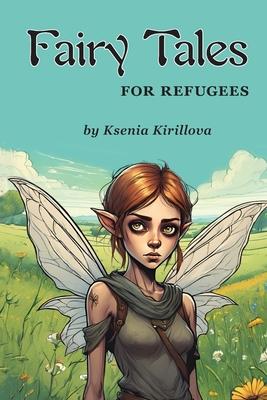For a long time, I wanted to write stories for refugees, for those who have lost their homes and are forced to wander, who live in constant fear of the future and do not know what will happen to them tomorrow, who have learned the fear of death. Of course, they are not only meant for refugees, but for all those who are in a difficult situation.
And here it was important, on the one hand, to meet the psychological needs of the readers, so that the problems we write about would resonate with people, so that they would feel that it was written for them. For example, there are a lot of relaxing meditation exercises on YouTube, and many of them ask the listener to remember that they are at home, safe, in their bed. But for people who have lost their homes, who don't know what will happen to them tomorrow, who live in constant fear and uncertainty, such things can only cause irritation, they sound mocking. It is important for the reader to see that the characters' problems are, in a way, reflections of their own.
On the other hand, it's important that they don't act as a trigger, that they don't add to the trauma. Again, it's not just refugees. All people who experience today's wars and catastrophes in one way or another feel this pain. Over time, the psyche does not have the resources to absorb heavy issues like war, death, and destruction. Our job is not to add to the trauma, but to help them survive it. Therefore, with the similarity of the experiences of the characters in the books to the feelings of the readers, it was important to find other reasons for their conditions, some other, fairy-tale reality that would not open the wounds of the readers' souls.
For example, the Rain Elves, like many people today, live in constant fear. But the reason for their fear is different-they do not live in seas and oceans, but in water that can evaporate at any moment: rainwater, small puddles, dew on the grass. They consider themselves the guardians of this water and cannot leave it, but they are constantly forced to find a new home for themselves, lest they evaporate along with their former home. However, these elves also have their own ways of coping with fear and finding happiness even in such a fragile world.
In addition to elves, fairy tales feature a wide variety of magical creatures. Some of them, for example, are based on Serbian mythology. In them there are villas-forest fairies, or young men-snakes, which in Balkan legends act more as positive characters.
All fairy tales have a healing effect-they remind us of childhood, the belief in miracles, magic. But here, in addition to that, I specifically try to introduce some therapeutic moments into the story. In fact, each fairy tale was written to overcome a specific condition: fear, loss, traumatic memories, and so on.
Of course, fairy tales will not be enough to alleviate some pathological conditions. They are not meant to replace therapy, much less medication. However, they can calm a person a little, give him a piece of magic and hope. If, after listening to such a bedtime story, a person forgets his problems at least for a while and falls asleep with a happy dream, it is already a lot. Fantasy reality is good because it distracts us from our problems, and sometimes in a difficult condition it is important for people to just distract themselves.
The book has already been published in two languages-Russian and Ukrainian. The fact that Ukrainians in the terrible conditions of war, with constant power cuts, found time and energy to translate these stories and publish them in full circulation gives me hope that people really need them. That is why I decided to translate them into English so that they can help as many people as possible.
Ksenia Kirillova
